
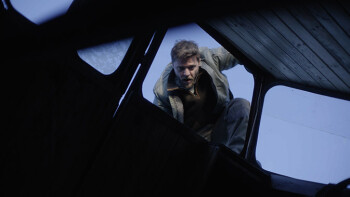
In a Greek seaside town, Elias uses his father’s sailing stories as his own to charm the people around him. He convinces a group of misfits to join him in the impossible task of building an actual ship out of scrap, a vessel of escape in the sea.
Elias drifts between the ship’s construction and visiting his demented mother, who constantly mistakes him for his father. A gypsy girl, Tasia, hustles Elias and eventually becomes the last member of his crew.
As the dream of the journey becomes tangible, the crew’s attachment to the ship grows ever stronger while Elias loses his grasp on reality. His fake identity is in jeopardy, and he will need to achieve balance between his crew’s dream and his own nightmares.
Aristotelis Maragkos is a writer/director whose work focuses on obsessive stories and dealing with the past. His films experiment with different forms and materials and have screened at festivals around the world, including Telluride, Locarno and Annecy.
His first animated feature, The Timekeepers of Eternity, is a found-footage paper appropriation of the 1995 TV series The Langoliers. It premiered at Fantastic Fest 2021, receiving rave reviews. It has since screened at over 50 International Festivals, winning Best Experimental Film at the Sharjah Film Platform 2022 and BAFICI 2022. It was acquired by AGFA to be part of their theatrical catalogue.
Konstantinos Koukoulis has worked as a service producer in Greece for many international organizations, including the BBC, ARTE, CBC, CANAL+, VICE and HBO. As a director of photography, he collaborated on Ai Weiwei’s project Human Flow (Amazon Studios, 2017). In 2021, he established PLANKTON, the only film production company based on an island in the Greek Aegean Sea. PLANKTON's first co-production, The Invisible Fight (Estonia, Greece, Latvia), directed by Rainer Sarnet, was supported by Eurimages.
Why would anyone build a boat that may never sail? Why do dreams drive our everyday actions despite us knowing that they are impossible to realise?
The infamous Greek poet/sailor Nikos Kavvadias referred to beachcombers as sailors who wandered the ports, passionate for the idea of a journey, even while acknowledging that they couldn’t lead a life at sea. The fundamental struggle of their desire to sail away and their weakness to fulfill their dream provided the prototype for the inner conflict of our protagonist, Elias.
Beachcomber is a film about failing but not giving up; this painful but reassuring feeling that comes from acknowledging defeat and embracing it as a vital drive to evolve.
PLANKTON
Ap. Vamvouri 6, 81100, Mytilene, Lesvos, Greece
Email: [email protected]
BYRD
K Palaiologou 73, 15232, Athens, Greece
Email: [email protected]
 Aristotelis Maragkos | Director
Aristotelis Maragkos | Director
Email: [email protected]
Mobile: +447 542 635 223
 Konstantinos Koukoulis | Producer
Konstantinos Koukoulis | Producer
Email: [email protected]
Mobile: +30 694 715 42 49
 Myrto Stathi | Co-producer
Myrto Stathi | Co-producer
Email: [email protected]
Mobile: +30 697 600 20 01
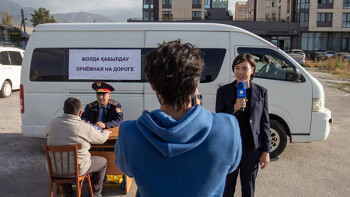
Dina works as a journalist for the Kazakh national television station. The stories she is asked to report on are becoming increasingly absurd and full of praise for the government. Her love life is limited to a few secret meetings with her married cameraman. Dina looks after her young sister, a lesbian activist, who regularly finds herself in trouble with the authorities.
Assel is a Kazakh director and screenwriter and graduated from the IFBA of the Busan Asian Film School. She is a Berlinale Talents alumna. Bikechess is her second feature film, and her first was Welcome to the USA, which had its world premiere at AFI Fest. This is the first Kazakh feature film with a protagonist from the LGBTQ community. It won the prize of Best International Feature at NewFest New York LGBTQ Film Festival. She has three short films that participated in the Cottbus Film Festival, PÖFF Shorts, Uppsala Short Film Festival, Go East Film Festival and others. Her recent short film Comrade Policeman was awarded Special Prize in the Short Film Competition at FilmFestival Cottbus.
Antoine Simkine is an experienced professional focusing on production and VFX with over 30 years of practice in the cinema industry. Throughout his career, Antoine has been involved in the production of more than 20 feature films, many of which have been presented and recognized at A-list festivals. His expertise in visual storytelling has made him a respected figure in the film industry. He's currently the president of ACE Producers.
The idea of the film was born from a report on a new sport invented in Kazakhstan, which consists of playing chess while pedalling on a fitness bike. For me, this concept perfectly symbolizes the absurdity of many things in Kazakhstan, and the script is inspired by real facts and news reports. One of the themes of the film is journalism in contemporary Kazakhstan. Today, the main task of the media is to spread a positive image of the state. Our film shows “the little people” who have adapted to life in such a system. It is an absurd tragicomedy that deals with deeper issues: How much compromise can everyone tolerate? Can conformity and hypocrisy guarantee a stable and serene life?
Les Films d´Antoine
85 rue Vauvenargues, 75018, Paris, France
Email: [email protected]
Alma Pictures
7/1 Aralskaya st., 050056, Almaty, Kazakhstan
Email: [email protected]
Maipo Film
Mølleparken 4, 0459, Oslo, Norway
Email: [email protected]
 Assel Aushakimova | Director
Assel Aushakimova | Director
Email: [email protected]
 Antoine Simkine | Producer
Antoine Simkine | Producer
Email: [email protected]
Mobile: +33 687 753 095
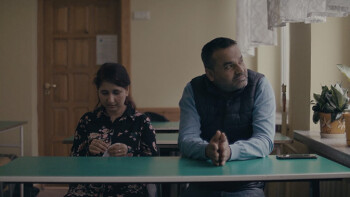
Shiv, Shushila and their son, Nikesh, came to Poland from Nepal with the belief that a better life awaits them there. Shiv works for Uber and is hardly ever at home, Shushila is still mentally stuck in her homeland, being in touch solely with her Nepalese family, and Nikesh is a teenager whose only desire is to impress his peers. Changing their living conditions leads to Shiv and Shushila's marriage falling apart, and the lack of time and care for their son leads Nikesh down the wrong path. The film about a family disintegrating is a picture of the price one has to pay when coming to Europe.
Matej Bobrik (born in Prague in 1982) is from Slovakia. He graduated from the directing department of the Polish National Film School in Lodz & Wajda School. His student film Where the Sun Doesn't Rush (2009) was shown at international film festivals such as IDFA, DOK Leipzig, Visions du Réel and others. He currently lives in Warsaw. For his debut, he completed The Visit (2013) produced by Studio Munka. The film premiered at IDFA and was shown at many other international festivals. His latest film Our Little Poland premiered at Warsaw Film Festival.
Agnieszka Skalska is a producer with extensive experience in PR activities. Her latest film Radical Move, directed by Aniela Gabryel, won the Best Documentary Producer Award at Krakow FF 2023. Her previous film, Silent Love by Marek Kozakiewicz, was screened at many festivals in Poland and abroad (IDFA, Visions du ReelRéel, Slamdance) and was nominated for the Polish National Film Award (Orły 2022). Agnieszka is one of the Emerging Producers 2021 and a graduate of the University of Warsaw.
The main theme is to tell the story of the consequences that await immigrants who come to Poland and try to establish a new life. My characters have become prisoners of the comforts of our society and have been robbed of the most important things – the warmth of their home, traditions and roots.
The idea is to make a film in which we don't look at the characters from the perspective of immigrants, but as people with problems we can identify with and understand.
For me as a documentary filmmaker, it is important to capture what is current around me now; what is happening and what impact it has on society now and in the future. This is an absolutely new phenomenon and has not yet been researched in Poland, as it is just now emerging.
Koi Studio
Słupecka 4/29, 02-309, Warsaw, Poland
Email: [email protected]
Mobile: +48 509 236 089
 Matej Bobrik | Director
Matej Bobrik | Director
Email: [email protected]
 Agnieszka Skalska | Producer
Agnieszka Skalska | Producer
Email: [email protected]
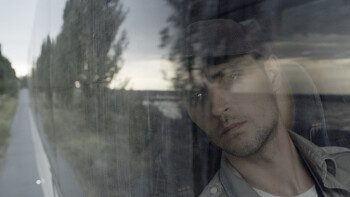
The Editorial Office is an adventure film in which good faces evil in the course of investigations, chases, shoot-outs and truth-seeking. Once upon a time, young Yura, a junior researcher at the provincial nature museum, witnesses and documents an arson in the forest while on a field trip looking for a quickly disappearing species of marmot. Willing to expose the arsonists, he brings the photos of the crime to a local newspaper and coincidentally gets a journalist job there. His new profession exposes him to a treacherous world of post-truth while leading him at the same time to true friendship and love.
Roman is a graduate of the Kyiv State University of Theatre, Cinema and Television. He serves as artistic director and sits on the Selection Committee of Docudays UA International Human Rights Documentary Film Festival.
His first feature-length documentary film, Ukrainian Sheriffs, took the Special Jury Prize at IDFA 2015 and was selected as the Ukrainian submission to the 89th Academy Awards (Oscars) in the category of Best Foreign-language Film. His second documentary effort, Dixie Land (2016), premiered at the Full Frame Film Festival (USA) and received the Golden Duke Award for Best Ukrainian Film at the Odesa International Film Festival. Roman’s fiction debut, Volcano (2018), has won 12 international awards and was selected for screening by more than 50 festivals worldwide.
Darya Bassel has worked in the filmmaking industry since 2008 and served on juries at numerous festivals, including IDFA, Krakow IFF and Visions du Réel. In 2019, together with Vika Khomenko, she launched launched her company Moon Man, which produces fiction and documentary films with a strong author’s approach. In 2022, Darya produced Butterfly Vision (dir. Maksym Nakonechnyi) for TABOR production, which premiered at Cannes 2022 in Un Certain Regard. She also co-produced the Oscar nominated documentary A House Made of Splinters.
The Editorial Office is about things that are now most on my mind. About people and places that are dear to me in the Southern Ukraine where I was born. About provincial newspapers like the ones I used to work for when I was very young. About the chimerical, fictitious reality they were making up in order to attract readers. How they would cover up - for a bribe - local shady businessmen who were burning and cutting down the forests. About our last summer before the full scale war - someone was getting ready, but most of us were just living every day to the fullest, refusing to notice the Russian tanks just 70 kilometres from the city. Now part of this land is flooded with Russian terrorists, who blew up the Kakhovka Dam. Those whose homes are still intact are evacuating people and animals in the midst of artillery shelling. I want to give a voice to these people. To preserve the warmth of this land before the catastrophe.
Moon Man
Kyiv, Ukraine
Email: [email protected]
 Roman Bondarchuk | Director
Roman Bondarchuk | Director
Email: [email protected]
 Viktoriia Khomenko | Executive producer
Viktoriia Khomenko | Executive producer
Email: [email protected]
Mobile: +380 97 469 87 65
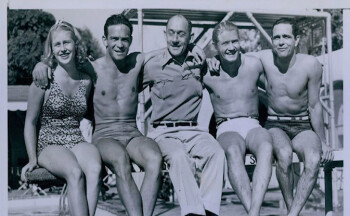
The Fifth Resurrection of Farid is a project that endeavours to create a virtual autobiography of the forgotten Egyptian-born Olympic champion, actor, photographer, filmmaker and WWII U.S. Soldier, whose headless body was found near the village of Makassar in South Sulawesi, Indonesia, as a prisoner of war on September 11th, 1943.
This is a story of the deep alienation that accompanies migrating to a foreign land, creating a new identity and the collective need to obliterate our national heroes and create new ones.
The term "documentary" can sometimes be misleading, as its verisimilitude is a given and can denote a stylistically straightforward type of cinema filled with talking heads. However, there have been recent experiments that allow for dynamic storytelling and the intertwining of fictional elements within the framework of verifiable facts. My work has been an exploration into this experimental documentary genre, and I expand upon this by continuing to play with aesthetics and devising an essayistic approach to telling Farid Semeka's story.
Yasmin Desouki is a film archivist, curator, writer and researcher. After graduating from NYU's Tisch School of the Arts, she traveled to Egypt in 2011 and worked at Misr International Films, managing their archive with a special focus on preserving filmmaker Youssef Chahine's collection. She subsequently worked as the Artistic Director of Cimatheque-Alternative Film Center in Cairo, and has since moved back to the United States, working as a Collection Manager at Chicago Film Archives and more recently at the New York Public Library. Desouki’s research has been presented at various conferences and film festivals around the world, including the Berlin International Film Festival and the Amateur Film Festival, among others.
This is a story of the deep alienation that comes with accompanies migrating to a foreign land, creating a new identity, of the collective need to obliterate our national heroes and create new ones.
The term "documentary" can sometimes be misleading, as its verisimilitude is a given, and it can denote a stylistically straightforward type of cinema filled with talking heads. However, there have been recent experiments that allow for dynamic storytelling and the intertwining of fictional elements within the framework of verifiable facts. My work has been an exploration of into this experimental documentary genre, and I expand upon this by continuing to play with aesthetics and devising an essayistic approach to telling Farid Semeka's story.
 Khalid A. Youssef | Director
Khalid A. Youssef | Director
Email: [email protected]
Mobile: 773-712-5914
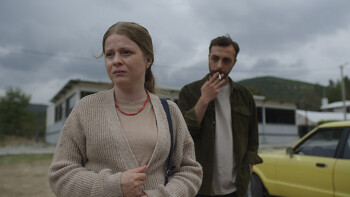
Gülizar, who lives in a Turkish border town, sets out to marry Emre, who lives in Kosovo. On the trip, she is molested by another passenger. During preparations for the wedding, Emre finds out that Gülizar is being abused by someone. Over the course of a week as they officially and traditionally get closer to each other, they try to find the abuser.
Belkıs Bayrak is a filmmaker who received her MA degree in Film and Television from Istanbul Bilgi University. Her first short film The Apartment (2018) was screened at more than 20 international festivals. She founded her own production company, Saba Film. Her second short film Cemile (2021) was screened at more than 50 international film festivals including Dublin, Istanbul or Bosphorus Film Festival. Gülizar is her debut film project. She is an alumna of Torino Film Lab, Reclaim the Frame’s Filmonomics Program and a member of EWA.
Mehmet Bahadır Er is a producer, director and writer and received his MA degree in Film and Television from Mimar Sinan Fine Arts University. He has worked on movies, TV dramas and international co-productions, and his films have received more than 50 awards all around the world. The latest film he produced, Klondike, received awards at Sundance and Berlin and was Ukraine’s official entry for the Oscars. He has been a member of the European Film Academy since 2017.
I was raised with the belief that marriage will end all pain and bring unconditional happiness to everyone, just like my protagonist. The film narrates the story of Gülizar, who is sexually assaulted one week before her marriage with Emre. During preparations, she tries to cope with her post-trauma with Emre’s support. Ironically, as they traditionally get closer to each other, they start to feel farther apart emotionally. Love and finding self-knowledge are connected to each other. Finding self-love and awareness can be seen as the main themes of this film.
The cross-border story of Gülizar is significant to me as the representation of a female character who is both fragile and strong.
Protim V.P
İstanbul, Turkey
Email: [email protected]
Plan Bee Films
Prishtina, Kosovo
Email: [email protected]
 Belkıs Bayrak | Director
Belkıs Bayrak | Director
Email: [email protected]
 Mehmet Bahadir Er | Producer
Mehmet Bahadir Er | Producer
Email: [email protected]
 Valmira Hyseni | Producer
Valmira Hyseni | Producer
Email: [email protected]
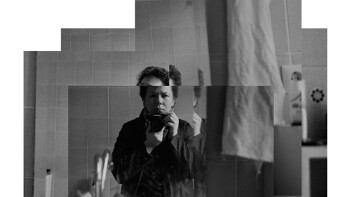
After the Soviet invasion of Prague, a young female photographer strives to break free from the constraints of Czechoslovak normalization and embarks on a wild journey towards freedom, capturing her experiences on thousands of subjective photographs.
Klára Tasovská graduated from the New Media Department at the Academy of Fine Arts and the Documentary Film Department at FAMU in Prague. Her mid-length documentary essay Midnight (2010) was screened at several international film festivals (Ji.hlava IDFF – Special Jury Mention, Visions du Reél Nyon, EMAF Osnabrück – Newcomer Award, etc.). Her feature-length debut Fortress (2012), directed together with Lukáš Kokeš, was awarded Best Czech Documentary at Ji.hlava IDFF 2012. It also competed at CPH:DOX 2012 among other European festivals and was nominated for the LUX Prize 2013. Klára worked for the Czech/Slovak HBO Europe office as a consultant for documentary film development. Her last film Nothing Like Before, co-directed by Lukáš Kokeš, premiered at IDFA's First Appearance Competition 2017.
Lukáš Kokeš studied at the Film Studies Department at the Faculty of Arts, Charles University in Prague and the Documentary Department at FAMU. He works as a cinematographer and editor on his own projects as well as in collaboration with other directors. This was also the case for the feature film Fortress (Best Czech Documentary award at Ji.hlava IDFF 2012, LUX Prize nominee, etc.), which he created together with Klára Tasovská as co-director, cinematographer and co-editor, and Nothing Like Before (2017, IDFA First Appearance Competition 2017) as co-director and cinematographer. He also collaborated on the development of the original drama series Wasteland (2016) produced by HBO Europe. At FAMU in Prague, he now teaches dramaturgy. With Klára Tasovská, he co-founded the Somatic Films production company.
How to be a woman, an artist and a creator and succeed in a world that is still male-dominated? How to have a family and believe in acknowledgment that may never come? How to be authentic in both work and life? How to find out who I really want to be in life? In the character of Libuše Jarcovjáková, I found a great protagonist who embodies all these questions. Although her story takes place from 1968 to the present, it is timeless and still highly relevant. Her search for islands of personal freedom, her decision not to have children, her sexual coming out, her escape to Berlin and unknown Tokyo… these story elements form the foundation for articulating themes that can inspire everyone.
Somatic Films
Na hutích 757/14, 160 00, Prague, Czech Republic
Email: [email protected]
nutprodukcia
Palárikova 13, 811 04, Bratislava, Slovakia
Email: [email protected]
Mobile: +421948050189
Mischief Films
Goethegasse 1, 1010, Vienna, Austria
Email: [email protected]
 Klára Tasovská | Director
Klára Tasovská | Director
Email: [email protected]
 Lukáš Kokeš | Producer
Lukáš Kokeš | Producer
Email: [email protected]
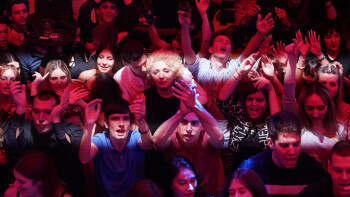
Mara, a successful businesswoman and single mother, isolates herself emotionally after the sudden loss of her son, Nemanja. Seeking answers about her son's life, she meets Milan, Nemanja's friend. Their shared grief over Nemanja's death draws them closer, leading to a physical relationship. Initially intending to keep Milan at a distance, Mara begins to open up to him and enjoys his company. During a day together at a boating house, Mara recounts finding her son dead, and Milan sees her true self for the first time. They experience genuine closeness and tenderness beyond their physical connection. Mara returns home, takes a bath in the tub where her son died and visits his grave. Sitting there, she feels a mixture of sadness and calmness, realizing she's finally accepted her son's death.
Mirjana Karanović is a Serbian actress known for many acclaimed roles in the films of the former Yugoslavia. She made her debut in 1980 in Srdjan Karanović's film Petrijin Venac. She gained world fame with the role of Mother in Emir Kusturica's film When Father Was Away on Business. One of her more significant roles was the role of "Esma" in the film Grbavica: The Land of My Dreams by Jasmila Žbanić (Golden Bear).
In 2016, Mirjana made her debut as the director of the film A Good Wife at the prestigious international Sundance Festival. A Good Wife has been screened at over 40 festivals around the world.
Mirjana is currently in post-production with her second feature, Mother Mara.
Snežana van Houwelingen is a film producer based in Belgrade. With a degree in Film Production from the Academy of Arts in Belgrade, she has excelled in the industry. She completed the prestigious EAVE Producers program in 2011 and the EAVE Plus program in 2021. Snežana has produced numerous internationally acclaimed fiction films, documentaries and TV shows. Currently, she has one TV show and three films in the advanced stages of development and financing. Snežana teaches Film Production at the Faculty of Media and Communications in Belgrade. She is a voting member of the European Film Academy.
This story is personal. The film depicts a female character who is my age and has a similar life experience. The character of Mara is built in the antinomy of being a successful woman and a "traditional" Balkan mother, in which her patriarchal background makes her suppress her emotions and vulnerability, forcing her to sacrifice. With this film, I want to provoke the public and encourage other women and all other people who feel underrepresented, in addition to those who are serving roles in life that their inner spirit is trying to fight against. Following the world of the main character and her split between what she shows outside and feels inside, the photography, as well as the tone and light of this film, is based on contrast - light and darkness, cold and warm, static and dynamic, rich and poor, old and young.
This and That Productions
Gavrila Principa 16/6, 11000, Belgrade, Serbia
Email: [email protected]
 Snežana van Houwelingen | Producer
Snežana van Houwelingen | Producer
Email: [email protected]
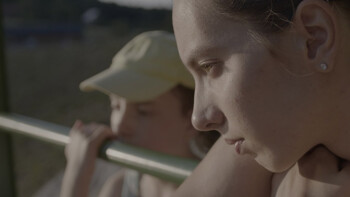
Eighteen-year-old Johana is entering a critical year of her teenage life. She wants to leave her small Czech hometown, but there’s more than high school graduation that stands between her and her aspirations. Johana’s life is largely defined by her younger sister’s atypical autism and mental disability, which shape the everyday life of the whole family. Her decision to leave the town slowly crumbles under the feeling of guilt and responsibility. Can her sister understand, given that Johana is her only friend? Can mum and dad manage without her help? Johana must figure out how to leave so she can return with love. A coming-of-age documentary about responsibility, sisterhood and loving not only others, but also yourself.
Marie-Magdalena Kochová is a Czech director based in Prague. She graduated from New Media in Pilsen and Documentary Film at FAMU. Her short film Apparatgeist (2019) was awarded Special Mention at Ji.hlava IDFF 2019. Her newest short film Shells (2022) premiered at Karlovy Vary International Film Festival 2022, competed at Hot Docs IDF 2023 and won Best International Student Film Award at Cinedans Film Festival Amsterdam 2023. Her work focuses on personal and social topics through documentary and fictional forms. She is currently working on her first documentary feature film, The Other One.
Barbora Drtílková is an up-and-coming producer from FAMU in Prague. She has produced many short films and worked at festivals such as Ji.hlava IDFF and One World FF. She went on to become the Head of Programming at Mezipatra Queer Film Festival, where she led the programming team for two successful editions. Since early 2023, she's been focusing on producing full-time. Her work revolves around social topics, politics and feminism.
Vít Poláček studied history at the University of South Bohemia in České Budějovice and screenwriting and script editing at FAMU in Prague. He worked as an assistant director in the social-theatre project KunstZ in Antwerp, Belgium in 2013. He mostly works as a freelance screenwriter and screen editor and is the co-founder of m3 films production.
I am a sister of a child with a disability. It took me a long time to realize that my dreams were just as important as my love and responsibility to my sister.
I met a girl whose situation mirrored exactly what I had experienced. Through her story, I would like to return to this fragile period of life and tell an intimate story about the search for freedom and responsibility to others, but also to oneself.
I can speak from personal experience that siblings of disabled children often keep their anxieties and lack of attention to themselves so they don’t further burden their loved ones. I want to dedicate this story, which I perceive as my inner duty to tell, to all those who grew up as the “other ones”.
m3 films
Karlovo náměstí 19, 120 00, Prague, Czech Republic
Email: [email protected]
 Marie-Magdalena Kochová | Director
Marie-Magdalena Kochová | Director
Email: [email protected]
Mobile: +420 602 263 009
 Barbora Drtílková | Producer
Barbora Drtílková | Producer
Email: [email protected]
Mobile: +420 774 921 928
 Vít Poláček | Producer
Vít Poláček | Producer
Email: [email protected]
Mobile: +420 731 604 498
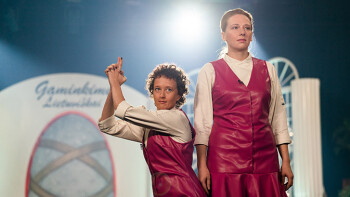
Ona and Saule are best friends and passionate cooks who are stuck working at "Tasty", a local canteen. Ona is a single mother and Saulė is an enthusiastic girl from the countryside. One day, Saulė enrols them in a national TV cooking competition, which offers a restaurant as the grand prize. Without Ona's consent, she lies about their culinary experience. Reluctantly, Ona gives in to Saulė’s lies and they both manage to enter the competition. Despite being viewed as a joke, their popularity skyrockets on social media. As Ona becomes the audience’s favourite, tension between the friends escalates as it’s fuelled by the show's manipulative celebrity contestant, Bruknė. Ona even starts dating a French jury member, adding to the friction. Will their friendship survive the intense pressure of the competition?
Egle Vertelyte is a Vilnius-based screenwriter and director who obtained an MA in screenwriting from the UK’s National Film and Television School. She directs documentaries and fiction films and writes screenplays for other directors. Her first feature film, Miracle, premiered at the Toronto International Film Festival, winning Best Film, Best Director, Best Writer and Best Actress at the Lithuanian Film Awards. Egle has also directed two award-winning documentaries, UB Lama and Managers of Luck, and has written screenplays for around ten short and feature length fiction films. She is currently completing her second feature film, Tasty, while the feature Southern Chronicles(dir. Ignas Miškinis), for which she wrote the screenplay, is also in post-production.
Lukas Trimonis is a graduate of BFM in Estonia and NFTS in the UK. From the 25 films he has produced over the course of 10 years, the vast majority are international co-productions that have gained recognition nationally and internationally. Some of the highlights include Miracle (dir. Egle Vertelyte), which premiered at TIFF in 2017 and received 6 national awards, Oleg (dir. Juris Kursietis), which premiered at Director’s Fortnight in Cannes 2019, or the documentary series project Borderline, with over 40 international festivals and 8 awards including Hot Docs International Emerging Filmmaker Award 2021. Lukas is a member of EAVE, EFP Producers on the Move and ACE producers.
Tasty is a culinary comedy that explores the creation of value. Can simplicity devoid of extravagant packaging truly stand out? Or is pretence necessary for survival in today's world? To explore these questions, I chose to set the story in a culinary contest, aiming to unravel the TV show's illusions and examine how it seeks to establish its own value. Two close female friends confront the fake reality of the TV show and must discover their personal worth while also redefining their friendship. Food serves as a metaphor in the film, illustrating how the same meal can have a completely different value when presented on a different plate with unique decorations.
IN SCRIPT
Sv. Mikalojaus 15-13, LT-01133, Vilnius, Lithuania
Email: [email protected]
 Egle Vertelyte | Director, Scriptwriter
Egle Vertelyte | Director, Scriptwriter
Email: [email protected]
Mobile: +370 69 68 87 11
 Lukas Trimonis | Producer
Lukas Trimonis | Producer
Email: [email protected]
Mobile: +370 69 91 49 13
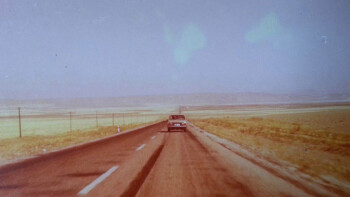
Angie (34) takes her father Mansour (74) on the same journey he made 42 years ago from Brussels to Beirut.
The path, however, is no longer the same. Over the 4,000 km that were once crossed, countries have disappeared and others have been born. Some borders have faded while others have emerged. Dictatorships have risen and fallen. Wars were extinguished and others broke out, causing deaths, destruction and displacement. And Lebanon, caught between the sea and two conflicts, is no longer accessible by land.
The journey of rediscovering the distance between Europe and Lebanon becomes an intimate discovery of the new father/daughter relationship beyond the borders of the traditional family context that they are usually framed in.
Born in Beirut, Angie Obeid holds a BA in Film Directing from NDU - Lebanon (2010) and an MA in Documentary Filmmaking from DOC NOMADS - Portugal, Hungary and Belgium (2018).
Her debut feature-length documentary, I Used to Sleep on the Rooftop (2017), received Special Mention at FIDMarseille and screened at festivals worldwide. Her short documentary Pacific (2019) earned multiple awards and was showcased at several festivals, such as Visions du Réel and Hot Docs.
After a decade of experience in production, Angie established Thereness Films, an independent production company dedicated to developing, producing and co-producing films with compelling narratives and strong artistic approaches.
Savage Film, founded in 2007 by Bart Van Langendonck, has had a significant impact on the international film industry. In association with Eyeworks Film & TV Drama since 2014, the company has garnered critical acclaim and commercial success with its compelling films. One of its milestones was Michaël R. Roskam's Bullhead, a nominee for Best Foreign Language Film at the César and Oscar Awards. Robin Pront's The Ardennes and Pieter-Jan De Pue's The Land of the Enlightened, among others, also achieved success worldwide. With a reputation for thought-provoking stories, Savage Film continues to produce diverse projects, pushing genre boundaries and engaging in international co-productions.
Documentary filmmaking has always been a medium for me to confront the aspects of my life that I might otherwise avoid. In Yalla, Baba!, I embark on a road trip with Mansour, my father, similar to the journey he made 42 years ago. My hope is to reach out to the young Mansour, understand the decisions he made when he was my age, and find common ground.
The film explores major geopolitical events and societal issues, including migration, religion, conservatism, family, feminism and tolerance. It also reflects on the challenges and opportunities that arise when navigating the boundaries between tradition and modernity, family and individuality, and home and the wider world.
Savage Film
Fabrieksstraat 43, 1930, Zaventem, Belgium
Email: [email protected]
 Angie Obeid | Director
Angie Obeid | Director
Email: [email protected]
Mobile: +32 48 78 59 996
 Isabella Rinaldi | Producer
Isabella Rinaldi | Producer
Email: [email protected]
Mobile: +39 375 677 7661
First-hand brews throughout the year.
Be among the first to learn about upcoming events and other news. We only send the newsletter when we have something to say.